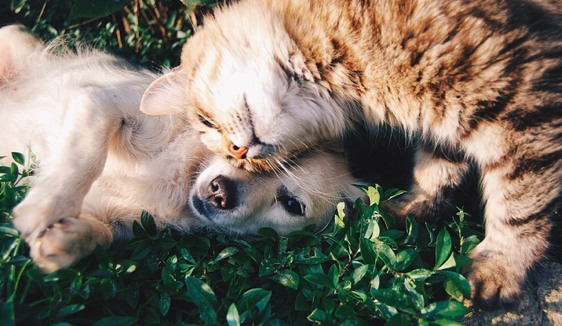Chiara Perri from Point Cook Dog Training School shares her best advice for ensuring your Pup learns how to navigate the big wide world with a smile on his face!
1. Why is socialising important for dogs?
Socialising for dogs is very important because it keeps dogs in touch with the world and it also helps them to continue to brush up on their language skills. For so many dogs, all they see is the sky and their backyard and for those that crave social interaction, taking them out to places to see their friends is crucial for their mental health. Not only do they learn to cope with other dogs and people but they also learn to cope with noises, new surroundings, smells, traffic and more.
2. What are your top tips for ensuring your dog is socialised?
Start as early as possible, especially if you have a puppy. Breeders can start socialisation from 2 weeks of age, gently exposing their pups to various stimuli to better prepare them for the world. Once owners collect their pups, they should start socialising immediately by having visitors over, taking the pup to school with the kids, taking the pup to cafes to see people and crowds and noises, going to puppy school to be around other dogs and more. The earlier it starts, the more coping skills it will develop and the more tolerant of others it will become. It is important to have your pups’ vaccinations up to date before they head out into public spaces or meet other dogs that may not be vaccinated.
Expose gently! Avoid negative experiences at all costs as these can unfortunately stick and the dog ends up associating dogs, people or situations as bad. This includes training and general interactions. They should be force free and there should be no bullying or intimidating in the process. It’s also important to learn to recognise when your dog is no longer having fun. If your dog is not smiling, then it’s not happy, and remember to keep training sessions short, after all they are only at the developmental age of a three year old.
3. Can all dogs be socialised? Even an apparently aggressive dog or a rescue dog?
As much as we all want our dogs to be super socialised, it doesn’t always happen and even with lots of training and hard work, you cannot change the personality of the dog. It’s like telling a child who loves to read books to suddenly go and play footy with kids down at the park.
If the dogs have had bad experiences, limited experiences or are anxious, then socialisation is very difficult but it can be done slowly, and we have to accept sometimes that our dogs don’t want other friends so we have to adapt our expectations.
With aggressive dogs, for the majority of cases in my experience, they behave this way because they are terrified or their owner overreacts, and with gentle exposure and very controlled socialisation under the supervision of a qualified trainer, we can actually make positive changes to those dog. I must stress though that there are some dogs though that just cannot get along with others.
With rescue dogs, it depends on their background and their personalities. There are those that have had an comfortable life and don’t mind making new friends and then there are others that have been so traumatised that they just prefer a quiet and stress free life! Your dog will tell you.
4. Are some breeds naturally less sociable than others?
All breeds are sociable providing they have had the opportunity from a very young age. There is no breed that is better than others as such. It does come down to the experiences the dog has had, the situations it has been put in and how things were handled. As much as the media portray certain breeds to be brutal and anti-social, I have had plenty of breeds such as Rottweilers, Bull Terriers and even Pit Bulls in my classes that play very well right into adulthood. There are some breeds that are known to be the players, the social desperados like the Labradors and Retrievers but this is because their breeders have raised them well from the start. I have sadly also seen these breeds come to classes terrified and very anti-social because they have come from puppy farms so as you can see, the early experiences make a huge difference.
Chiara’s final advice on the importance of buying from a reputable breeder
One last suggestion to all the people out there who are considering buying a puppy, please seek out a proper registered breeder who is raising the pups in a loving home, doing the socialisation from the start, creating good memories of people, kids and other dogs before they even leave home. Ask the breeders what they have done with the pups, ask to see the parent dogs to see if THEY are well socialised as they highly influence the behaviour of the pup. Ask to see where the pup has been living and ask to see the litter play together with the mother dog. There are lots of unscrupulous people selling puppies who don’t have the animals best interest at heart. A true animal lover would not meet you in a car park or hand over a pup from a garage shed. Be wary where you source your new family member from – you want them to have had the best start in life so that you can enjoy a wonderful future together.

